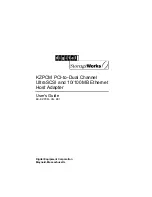
E
POST error messages
This appendix lists the error codes, error messages, and the various indicator light and audible
sequences that you may encounter during Power-On Self-Test (POST) or computer restart, the
probable source of the problem, and steps you can take to resolve the error condition.
POST Message Disabled suppresses most system messages during POST, such as memory count
and non-error text messages. If a POST error occurs, the screen will display the error message. To
manually switch to the POST Messages Enabled mode during POST, press any key (except
F10
or
F12
). The default mode is POST Message Disabled.
The speed at which the computer loads the operating system and the extent to which it is tested are
determined by the POST mode selection.
Quick Boot is a fast startup process that does not run all of the system level tests, such as the
memory test. Full Boot runs all of the ROM-based system tests and takes longer to complete.
Full Boot may also be enabled to run every 1 to 30 days on a regularly scheduled basis. To establish
the schedule, reconfigure the computer to the Full Boot Every x Days mode, using Computer Setup.
NOTE:
For more information on Computer Setup, see the
Computer Setup (F10) Utility Guide
on
the
Documentation and Diagnostics CD
.
Power-On Self-Test (POST)
POST is a series of diagnostic tests that runs automatically when the system is turned on. POST
checks the following items to ensure that the computer system is functioning properly:
●
Keyboard
●
Memory modules
●
All mass storage devices
●
Processors
●
Controllers
NOTE:
If the Power-On Password is set, a key icon appears on the screen while POST is running.
You will need to enter the password before continuing.
If POST finds an error in the system, an audible and/or visual message occurs.
90
Appendix E POST error messages
















































